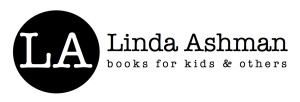Ten things to do if you want to write picture books:
- Join SCBWI. And find out what’s happening with your local chapter.
- Read craft books. You might start with (ahem) The Nuts and Bolts Guide to Writing Picture Books and Ann Paul’s Writing Picture Books.
- Read picture books—lots of them. You’ll find recommendations at our group blog, PictureBookBuilders, and many more in The Nuts and Bolts Guide.
- Read children’s poetry. Notice the sound, the rhythm, and the way a story can be told or a world created with very few well-chosen words.
- Write. Obvious, I know, but somehow it’s easy to let other things take precedence.
- Revise, revise, revise. Think you’re done? Revise some more.
- Make a dummy or storyboard. Nothing better demonstrates the unique structure of a picture book or shows more clearly if your text is working in this format.
- Think visually. Imagine your story as a movie, and leave out anything that doesn’t move the action forward.
- Cultivate patience—with your writing (don’t rush!) and with the publishing industry (nothing happens quickly).
- Hang in there. Rejection is part of the business. It’s good to have a supportive critique group and/or at least one sympathetic friend.
Coffee helps too. Especially when accompanied by, say, chocolate chip cookies.
A Few Resources for Writers
Children’s Literature
The Society of Children’s Book Writers and Illustrators. If you’re serious about writing for kids, join. Then find your Regional Chapter and sign up for a workshop or conference.
Harold Underdown’s Purple Crayon — an excellent resource for beginners and long-timers alike. Keep track of publishing moves at Who’s Moving Where.
KidLit411 — a comprehensive compilation of resources for children’s book writers of all genres. Looking for something? Chances are you’ll find it here (and a lot more).
100 Scope Notes. This long-running blog by elementary school librarian Travis Jonker has all sorts of good stuff related to children’s books.
Cynthia Leitich Smith — this author and long-time blogger has loads of info for children’s book writers and enthusiasts of all stripes.
Picture Books in Particular
Picture Book Builders. Twice-weekly posts about elements that make particular picture books sing from expert PB creators like Jill Esbaum, Kevan Atteberry, Pat Zietlow Miller, Jennifer Black Reinhardt and Tammi Sauer (and, for 6+ years, me).
Seven Impossible Things Before Breakfast. Julie Danielson no longer publishes this lovely blog, but it’s still a great spot to view beautiful picture book illustrations.
Susanna Leonard Hill. Susanna, a picture book author, writes a lively, informative and engaging blog with many resources for writers.
Tara Lazar. Lots of helpful posts and resources from this author and founder of PiBoIdMo (Picture Book Idea Month)
Jama’s Alphabet Soup. Jama Rattigan’s witty, informative and entertaining blog mixes picture books with tasty recipes, poetry, indie artist profiles and more.
Poetry, Mostly
Poetry for Children. Sylvia Vardell’s excellent blog about all things related to poetry for kids.
The Miss Rumphius Effect. Educator and long-time blogger Patricia Stohr-Hunt offers extensive resources, interviews and writing prompts focused on poetry and non-fiction books for kids.
Laura Purdie Salas. Laura’s information-packed website is an excellent spot for budding and experienced poets as well as those who want to write picture books.
No Water River. Writer, poet and editor Renee LaTulippe has created a wonderful resource for children’s poetry lovers, including videos of many children’s poets reading their own work.
Pomelo Books. Home of The Poetry Friday Anthology collections for the classroom as well as other poetry-related resources for teachers and writers.
RhymeWeaver. Lane Frederickson’s website offers a visual approach to learning all about rhyme, meter and related concepts.
Manuscript Consultations/Coaching
Although I’ve provided manuscript consultations in the past, I’m not offering them at the moment. Below are several highly experienced and knowledgeable writing coaches/consultants that I recommend. SCBWI members can also find a list of freelance editors in The Book.
Alli Brydon. Years of experience as both an editor and literary agent, and endorsed by my friend Jill Esbaum, who interviewed Alli over here.
Emma Dryden. A former editor, Emma offers a variety of critiquing, coaching and editing services. Experienced, smart and wise.
Susanna Leonard Hill. Picture book author and blogger (see above). Susanna offers an online picture book writing course as well as critiquing services.
Picture Book People. Former children’s book editor Simone Kaplan offers telephone coaching sessions, writing tips and more.
Susie Wilde–teacher, writer, reviewer and children’s lit expert–offers manuscript critiques, coaching, classes and more.

